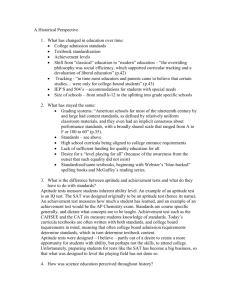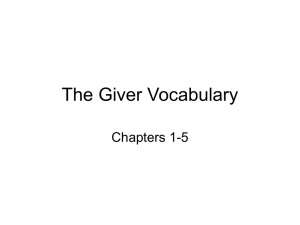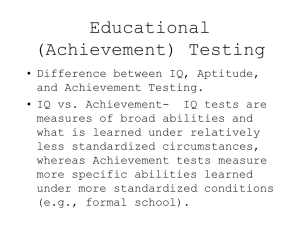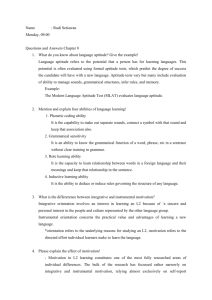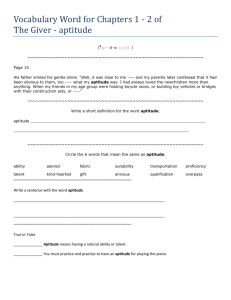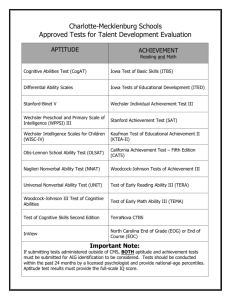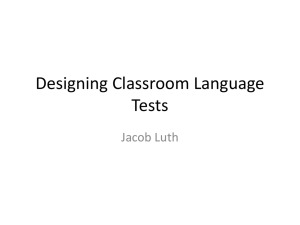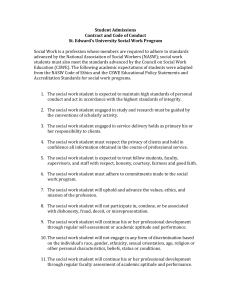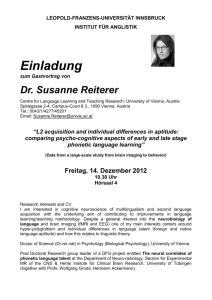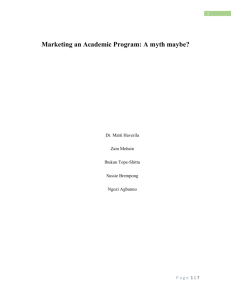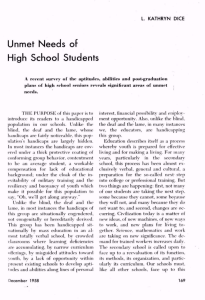EDUCATIONAL ASSESSMENT Aptitude tests
advertisement
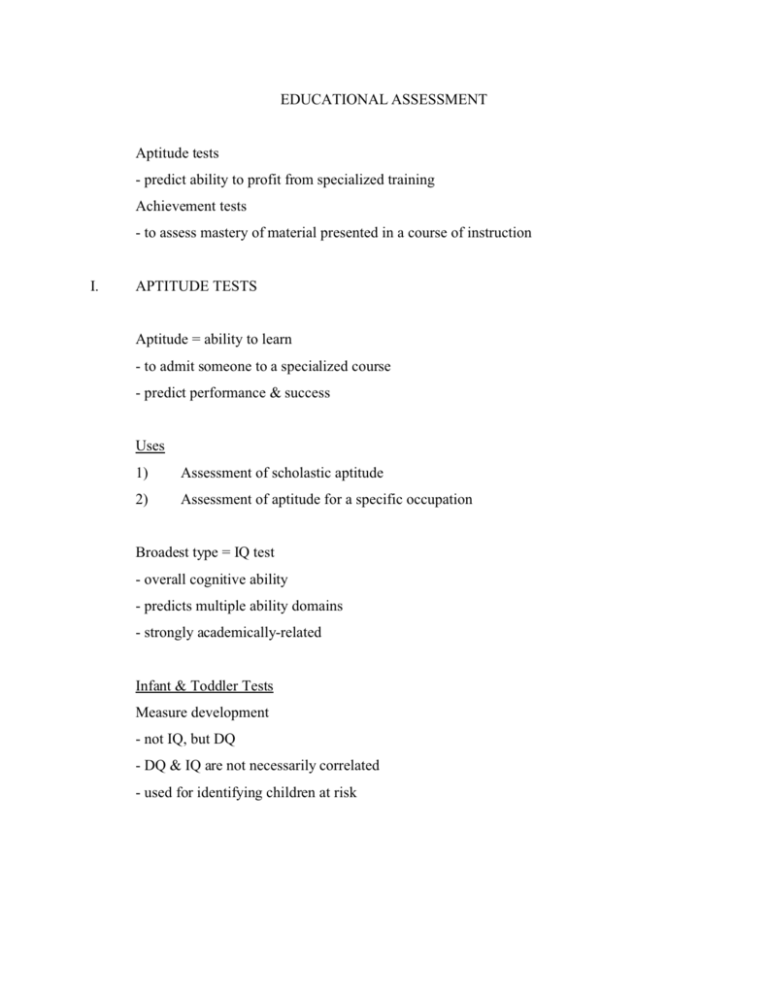
EDUCATIONAL ASSESSMENT Aptitude tests - predict ability to profit from specialized training Achievement tests - to assess mastery of material presented in a course of instruction I. APTITUDE TESTS Aptitude = ability to learn - to admit someone to a specialized course - predict performance & success Uses 1) Assessment of scholastic aptitude 2) Assessment of aptitude for a specific occupation Broadest type = IQ test - overall cognitive ability - predicts multiple ability domains - strongly academically-related Infant & Toddler Tests Measure development - not IQ, but DQ - DQ & IQ are not necessarily correlated - used for identifying children at risk Gesell Developmental Scales - 1st measure - 4 scales (adaptive, motor, language, personal-social) - norms = small group of middle-class kids Bayley Scales of Infant Development (2-30mos) Mental Scale - adaptive behavior Motor Scale - controlling body Behavior Record - fearfulness, social responsivity - Most commonly used - Normed on 1,262 normal infants/kids Educational Tests for Children - for specific functions not addressed by other IQ tests K-ABC (2.5-12.5) - 45-75 minutes - No IQ score - Mental Processing Composite + Sequential/Simultaneous + Achievement - Sequential = serial processing - Simultaneous = holistic processing Pros: 1) Differences in Seq/Sim can point to interventions - should be useful in education 2) Flexible administration - other languages, alternative wording - strong on nonverbal abilities -> for kids from other cultures/languages 3) Cons: 1) Short/quick Sequential vs. Simultaneous - some subtests are both - difference is unclear 2) Shorter age range - few subtests for young kids - ends at 12.5 3) (but other tests for older children) Norms under-represent low SES African Americans/Hispanics McCarthy Scales (2.5-8.5) - 45-60 minutes - General Cognitive Index + 6 subscales - No IQ Pros: 1) To evaluate learning problems 2) Gives profile of abilities 3) Includes motor coordination 4) Good standardization 5) Very short Cons: 1) 2) Few abstract or social judgment problems Restricted age range Problems in predicting academics with IQ 1) heavily weighted toward verbal skills 2) factor analyses = several abilities - predict performance in different domains better than IQ -> IQ tests overlook some abilities Development of multiple-aptitude batteries - assessed independent areas of cognition - however, later discovery of underlying g General Aptitude Test Battery (GATB) - US Employment Service (1947+) - for vocational counseling - scores related to occupational success 12 tests, yielding 9 factor scores II. 1) general intelligence 2) verbal aptitude 3) numerical aptitude 4) spatial aptitude 5) form perception 6) clerical perception 7) motor coordination 8) finger dexterity 9) manual dexterity ACHIEVEMENT TESTS Achievement = what has been learned - effects of specific program or instruction Uses 1) assign grades 2) facilitate learning 3) diagnose strengths & weaknesses 4) plan & evaluate educational programs Achievement tests may be essay or objective - objective tests have advantages easier & quicker to score more material in less time greater fairness in evaluation Achievement tests may be broad or narrow - general tests are widely used - track students horizontally or vertically III. COMPARISON OF APTITUDE & ACHIEVEMENT TESTS Should be very different But every test measures mental abilities & abilities reflect knowledge gained Differences 1) Relative uniformity of prior experience - achievement tests assume similar prior learning - aptitude tests presume more varied experiences 2) Intended use of results - achievement tests measure success of past learning - aptitude tests predict success in future learning Seen in validation procedures - achievement tests = content validation - aptitude tests = predictive validation Continuum of measurement - points on continuum of specific to general - guard against overinterpreting differences in scores
